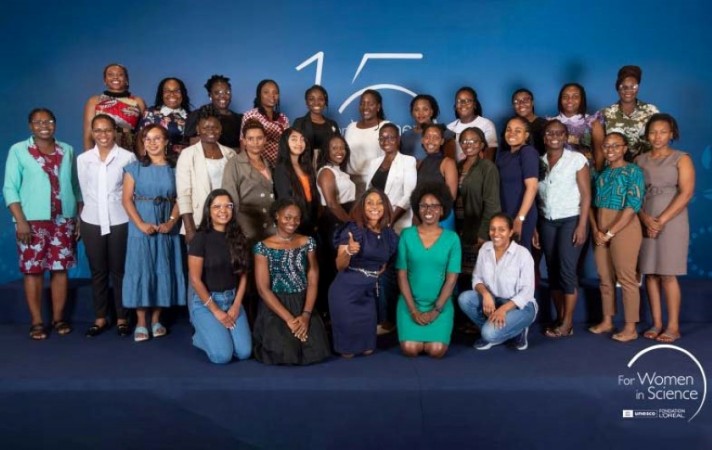
The 2024 L’Oréal-UNESCO For Women in Science Young Talents Sub-Saharan Africa Awards celebrated 30 outstanding African women scientists for their innovative research addressing critical issues such as food security, climate change, public health, and sustainable development. The awards ceremony, held on December 10 in Cotonou, Benin, highlighted the groundbreaking contributions of these women across diverse scientific disciplines.
This year’s cohort included 25 PhD candidates and five postdoctoral researchers from 15 countries. Selected from over 4,000 applicants, the awardees received grants of €10,000 for PhD candidates and €15,000 for postdoctoral researchers. Beyond financial support, the program provided tailored training in leadership, communication, and negotiation, equipping the scientists to navigate systemic challenges such as gender bias in academia.
A collaboration between the Foundation L’Oréal and UNESCO, the initiative seeks to address the gender disparity in African science, where women account for only 31.5% of researchers. Over the past 15 years, the program has recognized 240 women scientists from 34 African countries, offering them research grants, mentorship, and global visibility to support their work and amplify their impact.
Many of this year’s honorees are conducting research aimed at combating food insecurity and building climate resilience. For instance, Bakang Kedumetse Kgasudi from Botswana is developing climate-resilient cowpea varieties, while Tendai Abgirl Makore from Zimbabwe is creating nutrient-rich food supplements from edible insects. Ellasy Gulule Chimimba from Malawi is identifying drought-prone agricultural areas to aid farmers, and Sarobidy Rakotonarivo from Madagascar is advancing research to enhance food systems.
Several recipients are addressing pressing medical challenges in public health. Irene Nandutu from Uganda is harnessing artificial intelligence to study child brain health, while Kenya’s Matrona Akiso is working on an HIV vaccine specifically tailored for women. Opeyemi Ojueromi from Nigeria is exploring natural products to combat malaria, and Elisabeth Ngono from Cameroon is advancing research to fight river blindness.
Environmental sustainability and renewable energy were also key focus areas for the awardees. Dr. Caroline Rosemyya Kwawu from Ghana is researching ways to transform sunlight into fuel, and Happyness Ngonyani from Tanzania is developing tools to improve water management practices in rural communities.
In addition, the award recognizes scientists who have pioneered advancements in physical sciences and technology. Lexy Andati from Kenya is exploring distant radio galaxies, while Mbithe Nzomo, also from Kenya, is leveraging artificial intelligence to improve patient outcomes. Victoria Ngugi, another Kenyan awardee, is investigating the biological mechanisms behind ageing and heart disease.
In a joint statement, the Foundation L’Oréal and UNESCO emphasized the importance of empowering women in science to drive sustainable development in Africa. They noted that providing opportunities for female researchers is essential to creating innovative, locally tailored solutions for the continent’s complex challenges.
The awards program supports these women financially and prepares them for leadership roles through mentorship and training. This effort aligns with the broader goal of bridging gender disparities in research and fostering a robust pipeline of African women scientists.
The groundbreaking work of this year’s awardees represents more than just scientific progress—it inspires a future where African women play a central role in advancing knowledge, driving innovation, and shaping sustainable solutions for the continent and beyond.
Article by Jed Mwangi
Photo/Google

Comment